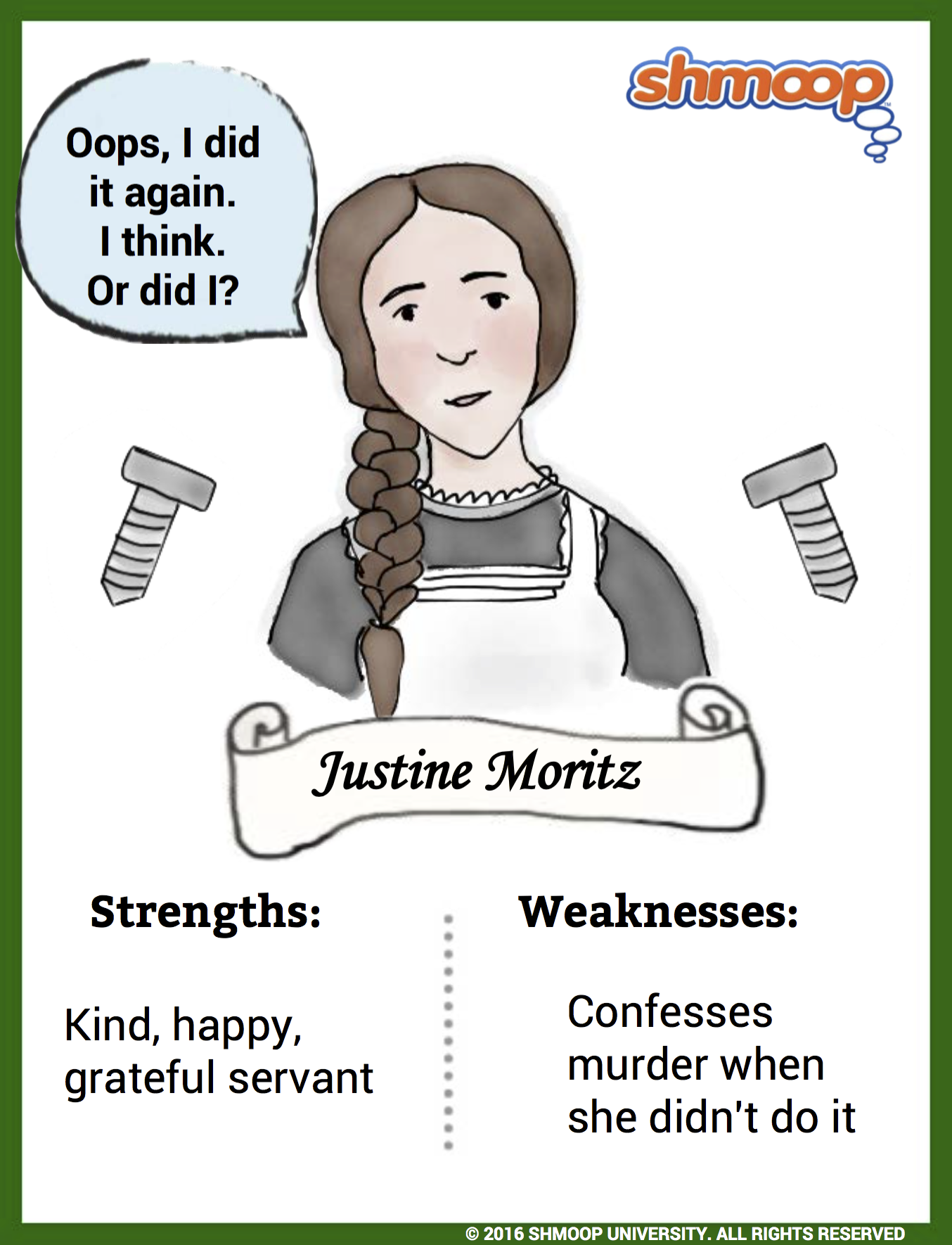Character Analysis

(Click the character infographic to download.)
Justine lives with the Frankenstein family as a servant after her mother dies. When William is murdered, the monster puts a photograph that William was carrying in her pocket, and she is accused of murder. She confesses falsely to the crime out of fear of going to Hell. She is executed.
In addition to the people he actually murders, the monster ends up indirectly causing the death of a few others as well. Justine is the first clear example of this. Alphonse is another. This is interesting. If we start blaming the monster for indirectly causing deaths, then we also have to blame Victor for the same crime. Sur—if the monster hadn't killed William, Justine wouldn't have been executed. But, if Victor hadn't created the monster, the monster wouldn't have killed William. See? Once you start down that path, you raise all sorts of questions of blame and morality and responsibility. Which is kind of the point of thinking about Frankenstein at all.
Justine is a servant in the Frankenstein house, but it's cool: being a servant in Geneva, unlike in England or France, "does not include the idea of ignorance and a sacrifice of the dignity of a human being" (6.5). Anyway, servant or not, Justine seems like a nice girl. She's "frank-hearted and happy"; she repays the Frankenstein family's kindness by being "the most grateful little creature in the world"; and, of course, she's "very clever and gentle, and extremely pretty" (6.7-8).
And then she's accused of murdering William Frankenstein. Yeah: it makes no sense to anyone, but she's discovered with a picture he had (the monster planted it on her), so it doesn't look good for her. And then she actually goes and confesses. Why? Because she's Catholic. Elizabeth already told us that she's superstitious—she decides that people she loves keep dying as punishment for her loving them too much—which is supposed to help us understand why she ends up confessing: her confessor (i.e., priest) convinces her that she'll go to hell if she doesn't.
Like almost everyone in the novel, Justine is more of an authorial tool than a character in her own right. She's a one-off anti-religious character; and she's also there to remind us that, while God isn't killing people she loves because of something she's done, the monster is killing people Frankenstein loves. In other words, don't blame God; blame yourself.